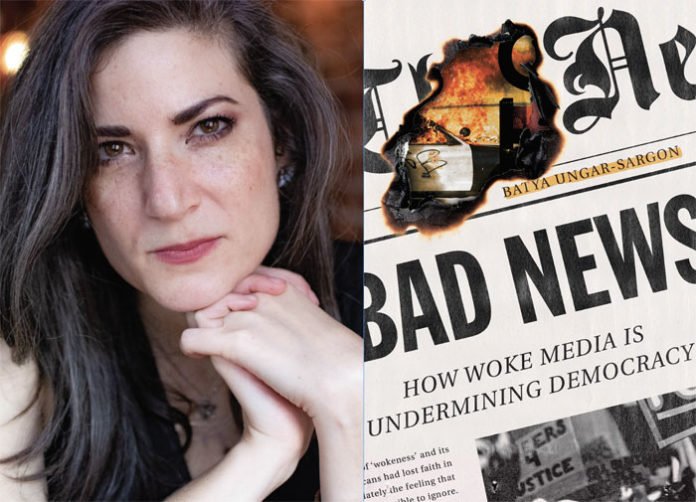Status & Power
I’m not sure how many of you watched Bill Maher this past Friday night, but I was absolutely blown away by his guest Batya Ungar-Sargon, the former Newsweek editor who spoke brilliantly and eloquently about the current state of the media in our country.
You can check out the episode on HBO to hear her far more detailed synopsis of things, but to summarize a few of her key points:
Being a journalist used to be a blue collar job, no different than a construction worker or delivery driver. It didn’t require any formal education, other than an ability to write coherently and get to the truth of a story.
Over time, it became a more elite position requiring a higher degree in journalism, and the job carried prestige. As that prestige grew, so did the notoriety.
Today, being a high-profile journalist is like selling a brand. The most famous have their core customers who agree with their individual philosophies, and they feed those audiences what they want to hear in order to keep the revenue coming. Rather than serve the public good, they serve their individual needs as brand managers. Social media then amplifies that messaging via the public and it turns into tribalism.
Regardless of whether you agree or disagree with her summation, it made me think about the whiskey industry today with its influencer culture both on the brand and consumer side. I’ve been saying for years that most of the people buying whiskey these days don’t actually drink it, but it wasn’t until I listened to Ungar-Sargon that the connection to both self-branding and tribalism became clear.
When you think about all the guys out there who post photos of their whiskey lifestyle on social media, hoping to brand themselves as influencers or voices of authority, you can see why the demand for rare and limited whiskey continues to grow. It’s not about drinking it. It’s not even about flipping it! Today, those bottles are a social currency in an entirely different value system that transcends experience or money.
When the point of something becomes public validation instead of education or enjoyment, you end up with a different usage than the one originally intended. Today’s budding journalists would rather be famous than good, just like modern whiskey lovers would rather be popular than happy. The attraction in both cases is status and power. Journalism and whiskey are simply vehicles to get there.
The New York Times is Ungar-Sargon’s main target during the show, but she’s far from the only journalist upset with the direction of that publication. Another regular Maher guest Bari Weiss famously resigned from the Times last year, writing: “The paper itself has increasingly become a kind of performance space. Stories are chosen and told in a way to satisfy the narrowest of audiences, rather than to allow a curious public to read about the world and then draw their own conclusions.”
That pretty much sums up the whiskey world for me right now: social media influencers performing for the narrowest of audiences, drowning out all the voices who attempt to give a larger world view. As Weiss stated: “Why edit something challenging to our readers, when we can assure ourselves of job security (and clicks) by publishing our 4000th op-ed arguing that Donald Trump is a unique danger to the country and the world?”
Tell that to the 4000th person to review Weller 107 on Instagram this year.
Anyway, check out that Bill Maher episode if you didn’t catch it. I think you’ll be just as captivated as I was. It will make you think long and hard about how something as simple as the daily news, or a bottle of whiskey, can turn into a completely self-serving enterprise with far reaching consequences.
-David Driscoll
